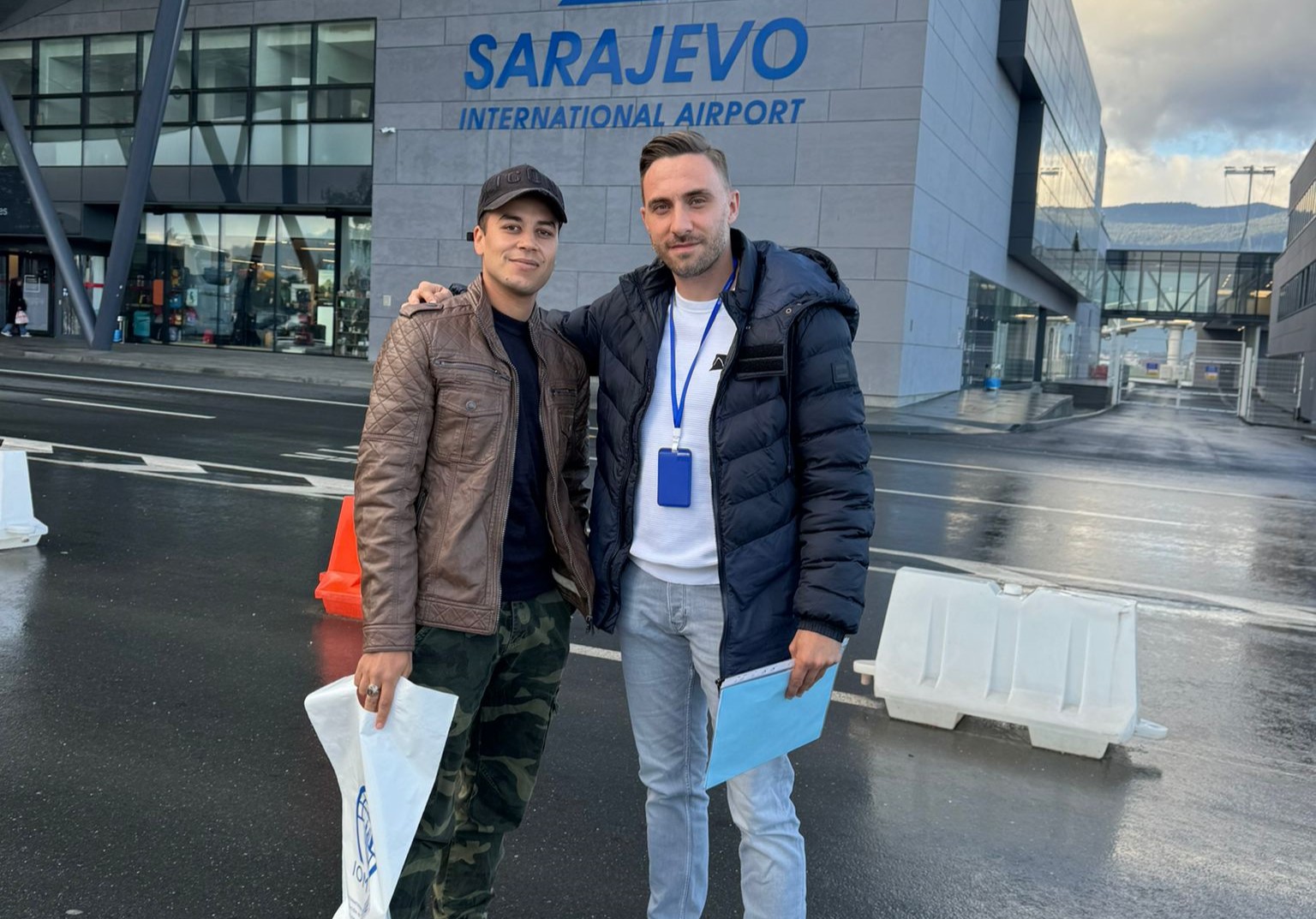-
Who We Are
WHO WE AREThe International Organization for Migration (IOM) is part of the United Nations System as the leading inter-governmental organization promoting humane and orderly migration for the benefit of all. IOM has had a presence in Bosnia and Herzegovina since 1992.
About
About
IOM Global
IOM Global
-
Our Work
Our WorkAs the leading inter-governmental organization promoting since 1951 humane and orderly migration, IOM plays a key role to support the achievement of the 2030 Agenda through different areas of intervention that connect both humanitarian assistance and sustainable development. Across Bosnia and Herzegovina (BH), IOM aims to prevent irregular migration, stop the trafficking of human beings, contribute to national development, and assist the BH Government to manage migration activities.
Cross-cutting (Global)
Cross-cutting (Global)
- Data and Resources
- Take Action
- 2030 Agenda
Oussama from Algeria: "People I met on my journey are Stories That Still Resonate in My Memory"
Beware of false hopes and scams on social networks when seeking a better life abroad
Oussama*, a native of Algeria, embarked on a migration journey four months ago. After numerous failed attempts to cross the border and facing difficult situations, he decided to return to his home country and sought assistance from the IOM Office in Bosnia and Herzegovina, getting in touch with Assisted Voluntary Return and Reintegration (AVRR) programme team who helped him to get back home.
Despite his education, Oussama was faced with the harsh reality of economic struggles in his country, which pushed him towards this challenging path. Reflecting on his experience, he shares his story with us and with others who may be considering a similar journey. He hopes to bring attention to the risks and expectations involved in such a migration journey.
“I would like to share my story from this journey. What motivated me to take this path is my unfulfilled dreams and the growing corruption in my country. Also, as a human being, I wanted to travel, experience different cultures, meet new people, and establish relationships with foreigners. I spent four months on this journey,” begins Oussama.
Aside from his passion for photography and history, Oussama also loves animals and owned many cats back home. He has many other hobbies and interests. “I have a university degree in English Didactics and English Literature. I am also a big fan of songbirds and their breeds. No one supported me in this journey; I made the decision on my own,” he continues.
Oussama acknowledges the many risks and challenges faced by people on the move. He personally encountered difficulties such as death, fear, hunger, exposure to harsh weather, wild animal encounters, and racism. It was these risks that ultimately led him to return home.
“I realized that nothing is worth risking my life and health (both mentally and physically). I couldn't tolerate the racism and the unexpected obstacles. I made the decision to change everything,” shares Oussama.
Despite the hardships of his journey, Oussama had also made friends with others who shared a similar fate:
“This journey greatly impacted me. I have become more patient, resilient, and cautious. I learned survival skills in the forest and has helped other migrants by translating for them when dealing with authorities. I also gained knowledge about Slavic countries and their history. I have met people from different countries and each one had a unique story that I still remember,” recalls Oussama.
As a word of advice, Oussama strongly discourages irregular migration and suggests exploring legal alternatives. He also warns against believing posts on social media that support such irregular journeys as they often portray a false image.
“I do not recommend taking this dangerous and irregular route. Instead, I urge you to explore other options through legal means. It is a terrible feeling to be caught doing something against the law, and the money spent on such a journey could be used to start a business in your own country. I believe that obtaining legal permission to travel abroad is the best option. And one more thing, do not trust everything you see on social media, especially videos that promote irregular migration. The reality is completely different, and I know that firsthand,” emphasizes Oussama. Back home, he intends to use the funds provided by the program to assist his sisters and mother, while actively searching for a job. During his migration journey, he encountered several people who were in need of help, and his communication skills were instrumental in providing assistance to many of them. Therefore, he is looking for a job where he can continue to help those in need and contribute to humanitarian efforts.

Assisted Voluntary Return and Reintegration (also named AVRR) is an international migration service created by the International Organization for Migration (IOM) to help migrants make informed and voluntary choices about returning to their home country. The main beneficiaries of IOM’s return and reintegration assistance are migrants with irregular status, regular migrants, asylum seekers who decide not to pursue their claims or who are found not to be in need of international protection, and migrants in vulnerable situations, such as victims of trafficking, unaccompanied and separated children, older migrants, or migrants with health-related needs as well as stranded migrants in host or transit countries. AVRR helps beneficiaries with their individual plan for returning, which is jointly planned, safe and dignified without a cost for beneficiary.
* name changed to protect person’s identity.
**Assisted voluntary return and reintegration (AVRR) programme is funded by the Ministry of Foreign Affairs of Denmark.
